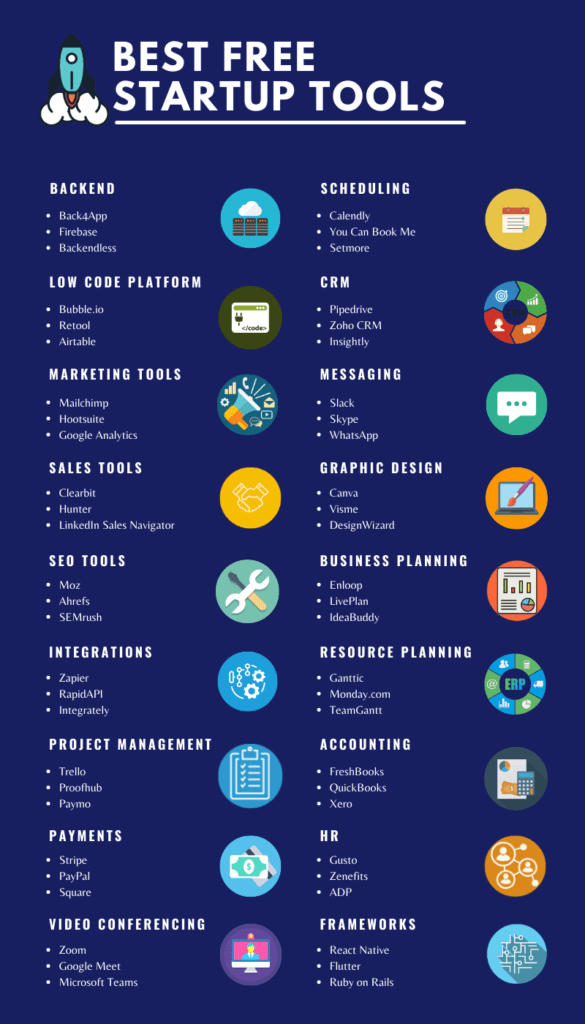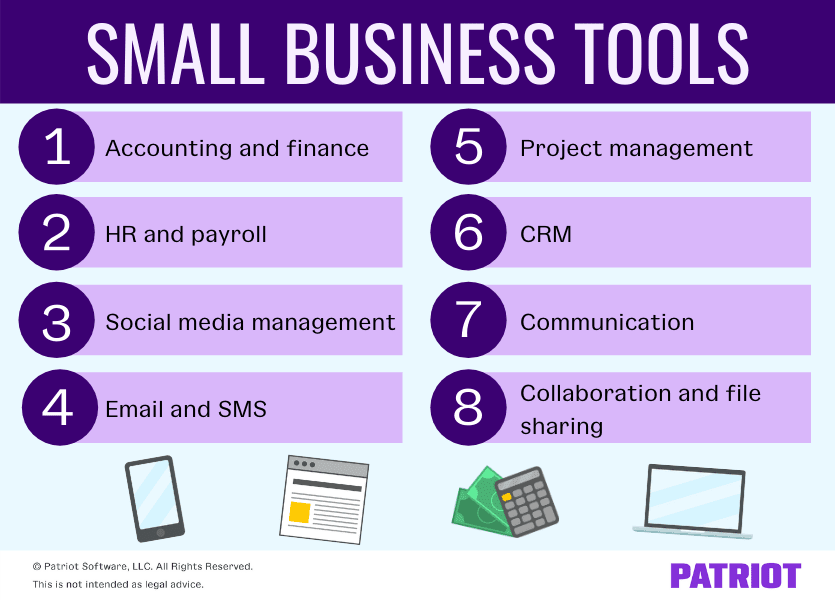Embarking on an entrepreneurial journey is akin to setting sail on an uncharted ocean. Just as a captain needs the right navigational tools to steer the ship, entrepreneurs need the right business tools to navigate the complexities of starting and growing a business. Choosing the right essential business tools can make the difference between smooth sailing and stormy seas. In this article, we'll guide you through the process of selecting the best startup tools, small business tools, and entrepreneurial resources to ensure your venture stays on course.
Understanding the Importance of Essential Business Tools
Essential business tools are the backbone of any successful startup. They help streamline operations, enhance productivity, and provide valuable insights. Whether you're looking for business software, productivity apps, or other entrepreneurial resources, the right tools can save you time, money, and effort. But with so many options available, how do you choose the best ones for your business?
Identifying Your Business Needs
Before diving into the vast sea of business tools, it's crucial to understand your specific needs. Ask yourself: What are the key challenges your business is facing? What processes need to be streamlined? What goals are you trying to achieve? Answering these questions will help you narrow down your search and focus on the tools that will truly benefit your business.
Key Categories of Essential Business Tools
Project Management Tools
Effective project management is crucial for any business. Tools like Asana and Trello can help you organize tasks, set deadlines, and track progress. These platforms allow you to collaborate with your team in real-time, ensuring everyone is on the same page.
Communication Tools
Clear and efficient communication is the lifeblood of any business. Tools like Slack and Microsoft Teams facilitate seamless communication and collaboration among team members. Whether you're working remotely or in an office, these tools ensure that information flows smoothly.
Accounting and Financial Management Tools
Managing finances is a critical aspect of running a business. Tools like QuickBooks and Xero can help you track expenses, manage invoices, and prepare financial reports. These tools provide valuable insights into your business's financial health, allowing you to make informed decisions.
Marketing and Sales Tools
Marketing and sales are the engines that drive business growth. Tools like HubSpot and Mailchimp can help you create and execute effective marketing campaigns, manage customer relationships, and track sales performance. These tools provide the data and insights you need to optimize your marketing and sales strategies.
Customer Relationship Management (CRM) Tools
Building and maintaining strong customer relationships is essential for business success. Tools like Salesforce and Zoho CRM can help you manage customer interactions, track sales leads, and provide excellent customer service. These tools ensure that your customers feel valued and supported.
Evaluating Business Tools: What to Look For
When evaluating business tools, there are several factors to consider:
Ease of Use
The best business tools are intuitive and easy to use. Look for tools with user-friendly interfaces and clear instructions. The last thing you want is to spend hours trying to figure out how to use a tool that's supposed to save you time.
Integration Capabilities
Many businesses use multiple tools to manage different aspects of their operations. Look for tools that can integrate with each other seamlessly. This will help you create a cohesive and efficient workflow.
Cost-Effectiveness
While some business tools are free, others come with a price tag. Consider your budget and the value that each tool offers. Look for tools that provide a good return on investment and offer scalable pricing plans as your business grows.
Customer Support
Even the best tools can encounter issues. Look for tools that offer reliable customer support. This can include live chat, email support, and comprehensive help documentation.
Case Studies: Successful Entrepreneurs and Their Essential Business Tools
Let's look at some real-world examples of entrepreneurs who have successfully leveraged essential business tools to grow their businesses.
Example 1: The Tech Startup
A tech startup used Trello to manage their project workflows and Slack for team communication. These tools helped them stay organized, collaborate effectively, and meet project deadlines.
Example 2: The E-commerce Business
An e-commerce business used Shopify to build their online store and Mailchimp for email marketing. These tools allowed them to create a professional online presence and engage with their customers effectively.
Example 3: The Consulting Firm
A consulting firm used QuickBooks for accounting and HubSpot for marketing and sales. These tools provided them with the financial insights and marketing data they needed to grow their business.
Conclusion
Choosing the right essential business tools is a critical step in the entrepreneurial journey. By understanding your business needs, evaluating tools based on key factors, and leveraging the right resources, you can set your business up for success. Remember, the right tools can streamline your operations, enhance your productivity, and provide valuable insights. So, take the time to choose wisely, and watch your business thrive.
FAQs
What are the most important business tools for startups?
- The most important business tools for startups include project management tools, communication tools, accounting and financial management tools, marketing and sales tools, and CRM tools.
How can I ensure that my business tools integrate well with each other?
- Look for tools that offer integration capabilities and check for compatibility with other tools you are using. Many tools provide integration options with popular platforms.
What should I consider when choosing a CRM tool?
- When choosing a CRM tool, consider factors like ease of use, integration capabilities, cost-effectiveness, and customer support. Look for tools that offer features tailored to your business needs.
How can I evaluate the cost-effectiveness of a business tool?
- Evaluate the cost-effectiveness of a business tool by considering its features, the value it offers, and the return on investment. Look for tools that provide scalable pricing plans as your business grows.
What are some common mistakes to avoid when choosing business tools?
- Common mistakes to avoid include not considering your specific business needs, choosing tools that are too complex or not user-friendly, and not evaluating integration capabilities and customer support.


By following these guidelines and considering the factors outlined in this article, you can choose the essential business tools that will help your startup thrive. Happy tool hunting!
Posting Komentar